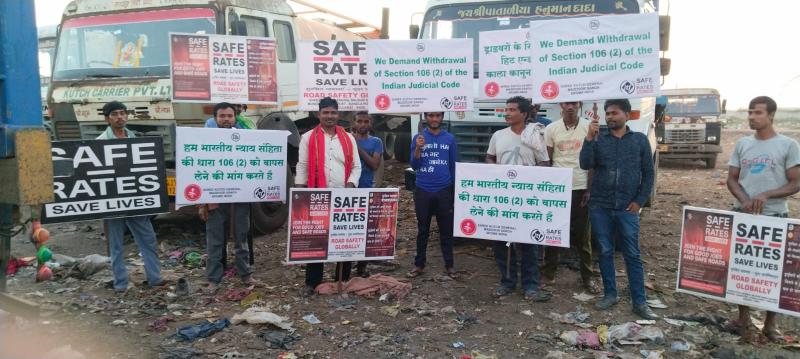Angela Ransome has been a bus driver in Ontario, Canada since 2014. She is a member of UNIFOR, and loves her job.
“I can drive anything, I like driving for a living, I like to have my office as windows and view,
and I am moving under nice weather and sometimes under bad weather. I love doing what I do,” said Angela.
She describes how access to decent sanitation facilities is the biggest challenge for her and her colleagues: “The lack of sanitation facilities at terminals is a big problem for bus drivers. Sometimes there are no washrooms even made available to us.”
“We cannot go to the washroom if our schedule is too tight, and sometimes there is no facility; You go to washrooms, there are no washrooms to use. So, it is better to sit and wait. Especially leaving the passengers on the bus and going to the toilet can cause problems.”
Most of the time, passengers do not appreciate it if you leave the bus on your road. Sometimes they don’t see us as being human and having needs. They don’t know I haven’t gotten out of the seat because of traffic jams, winter, or buses running late. They don’t know I have been running the bus for hours.”
“We usually get a break and do the second part to complete the working hours. But there have been times when I have been driving for five hours 45 minutes. I could not get out of my seat. Because I was too busy, too behind, and I had angry customers.”
Nobody wants to have an accident at work, especially as an adult; it is embarrassing and should not be happening.
Angela added that when sanitation facilities are available that: “The facilities sometimes are not favourable, I’ll be honest. We used to have his and hers toilets five years ago, but someone complained because males began using the ladies’ washrooms. Male workers use the women's toilet because they only have a few minutes to get off the bus and go to the toilet quickly. After the complaints by women workers, the company management decided to make all toilets unisex. From a female perspective, sharing the washroom with men is unsafe and dirty. We have to wipe the seats before we use them.”
As a member of her union’s health and safety committee, Angela works with her UNIFOR colleagues to improve the access to sanitation facilities for bus drivers, but her story underlines the importance of the campaign for all unions and transport workers.
According to Angela, the first step for ensuring access to decent sanitation facilities: “is to build sanitation facilities at all bus stops. We have terminals. So, if we have a bus stop, there must be a bathroom facility. As a union, we are responsible for securing this right and improving workers’ conditions.”
Safe access to decent sanitation facilities is vital for all workers, but it is an issue felt particularly acutely by women transport workers. To break down these barriers for women working in the transport industry, and the wider world of work, and to ensure dignity and safety for all workers, trade unions around the world are taking up the campaign for better conditions.
Angela’s story is part of a new exposé of the sanitation conditions faced by workers in public transport around the world. The report, Sanitation rights are human rights: public transport worker voices, profiles the stories of public transport workers and their everyday reality of having insufficient access to safe, clean, decent sanitation facilities.



